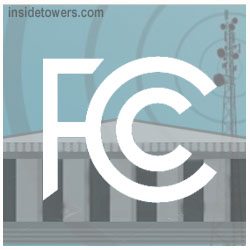FCC Chairman Ajit Pai said Wednesday 580 broadband and telephone service providers have now taken his Keep Americans Connected Pledge, an increase of 190 from last Thursday. Pai also commended providers that have responded to his call to go above and beyond the pledge by taking additional actions to enhance consumer’s connectivity during the coronavirus pandemic.
“I’m pleased to see that more and more providers are signing on to show their commitment to their customers. And many of these companies have gone even further, offering things like free service for low-income Americans and students, the easing of data caps, and increasing broadband speeds at no cost. These actions are helping many Americans transition to telework, telehealth, and remote learning.”
By taking the pledge, a broadband or telephone service provider commits for the next 60 days to (1) not terminate service to any residential or small business customers because of their inability to pay their bills due to the disruptions caused by the coronavirus pandemic; (2) waive any late fees that any residential or small business customers incur because of their economic circumstances related to the coronavirus pandemic; and (3) open its WiFi hotspots to any American who needs them.
Additionally, the Cloud Communications Alliance, Rural Wireless Association, and Telecom Alliance have endorsed the pledge.
Providers that have gone above and beyond the pledge include:
- AT&T: Offering free data plans for certain school-issued tablets for 60 days, waiving wireless voice and data overage fees for all customers, expanding eligibility for its low-income internet program and offering new program participants two free months of service, and creating a $10 million fund to support distance learning.
- Atlantic Broadband: Introducing a new low-cost broadband plan for new customers that is free for the first two months.
- Cable One: Introducing a new low-cost broadband plan for low-income consumers for 60 days and allowing unlimited data on all internet services for 30 days.
- Claro: Eliminating data caps in wireless plans, increasing capacity of hotspots, and increasing data allotment for Lifeline customers.
- Comporium: Offering 60 days of free broadband service to households with students that don’t currently have broadband and waiving installation fees.
- GCI: Upgrading broadband plans for existing customers and offering free entry-level plans for new customers through the end of May, including free WiFi equipment for new customers who are students or teachers.
- Hughes: Raising data caps and prioritizing educational services.
- TDS Telecom: Offering free broadband to new customers who are low-income and/or families with children or college students for the next 60 days.
- T-Mobile: Introducing new low-cost smartphone plans, reducing prices for hotspot devices and doubling the data allotment for those devices.
- Vast Broadband: Offering free broadband for two months for Black Hills State University students who don’t currently have home internet.
- Verizon: Providing two months of free broadband and voice service for current Lifeline customers, introducing a new broadband option for low-income households, increasing high-speed data allotments for existing wireless customers, waiving activation fees on new wireless lines, and free international calling to COVID19-impacted countries.
- Windstream: Offering two months of free service and waived activation fees for new low-income customers.





Reader Interactions